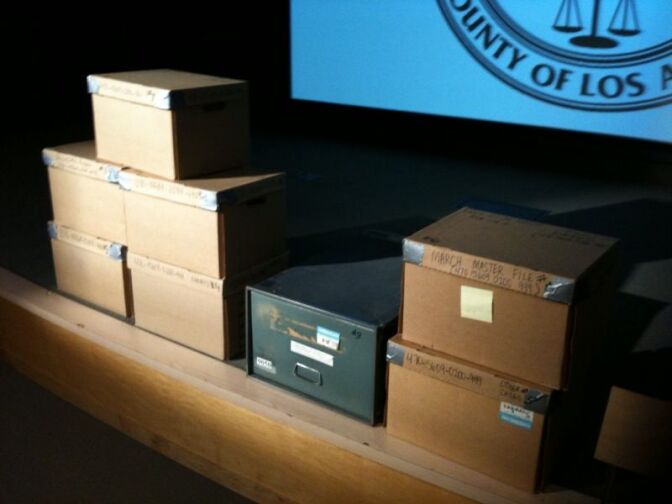This story is free to read because readers choose to support LAist. If you find value in independent local reporting, make a donation to power our newsroom today.
This archival content was originally written for and published on KPCC.org. Keep in mind that links and images may no longer work — and references may be outdated.
MALDEF goes to court to force release of documents related to death of Ruben Salazar

More than 40 years after the fact, questions remain about the death of Ruben Salazar, the journalist who was killed when a tear gas canister fired by an L.A. Sheriff’s Deputy struck him in the head.
Now a lawsuit is demanding more complete disclosure by the Sheriff’s department.
M.A.L.D.E.F., the Mexican American Legal Defense and Educational Fund, is suing Sheriff Lee Baca for refusing to release all records in the Salazar case.
The group is acting on behalf of L.A. documentary filmmaker Phillip Rodriguez, who has tried and failed to get those records for the past two years.
Back in 1970, Salazar was one of the best-known Latino journalists in L.A. at the time. He was covering the Chicano Moratorium March when things turned violent.
Salazar was inside the Silver Dollar Bar in East L.A. when Deputy Thomas Wilson fired a tear gas canister through the front door, believing there were gunmen inside.
Last year, Sheriff Baca allowed the media to read — but not copy — documents related to the case.
M.A.L.D.E.F. wants the sheriff to take the next step.
In its suit, M.A.L.D.E.F. says there’s no reason to withhold documents in a 42 year-old case, especially when the media has already seen them. The organization says that full disclosure would benefit everyone, including the Sheriff’s department.
Steve Whitmore of the L.A. Sheriff's Department called the M.A.L.D.E.F. action “a curious statement on our society" before adding that "the sheriff opened up those files to anybody who wanted to see them."
This story has been updated with the Sheriff's Department response.







